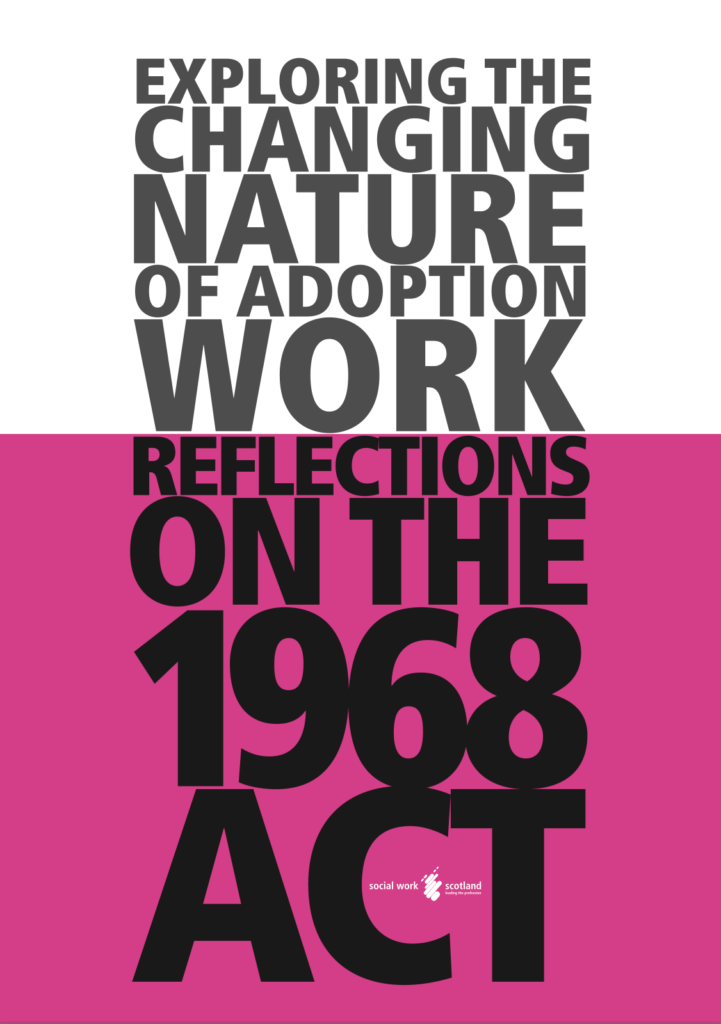
This paper charts changes in the social work role in adoption in Scotland since 1968. Although the Act
was not intended to reform adoption practice, it has had two major impacts. The first concerns the process of adoption. Since the majority of adoptions in 1968 were by ‘consent’, it is unlikely that the engineers of the Children’s Hearing system foresaw the role it would have in securing permanence for children. As adoption moved from ‘relinquishment’ to more complex and contested legal routes, the Children’s Hearing began to occupy an integral role in decision making for children in need of care and protection. The second major impact of the Act is in terms of the wider values of social work. Since 1968, adoption has gradually become understood as a resource for children who are unable to remain within the birth family or kinship networks. The welfarist foundations laid by the 1968 Act were instrumental in this process.



















